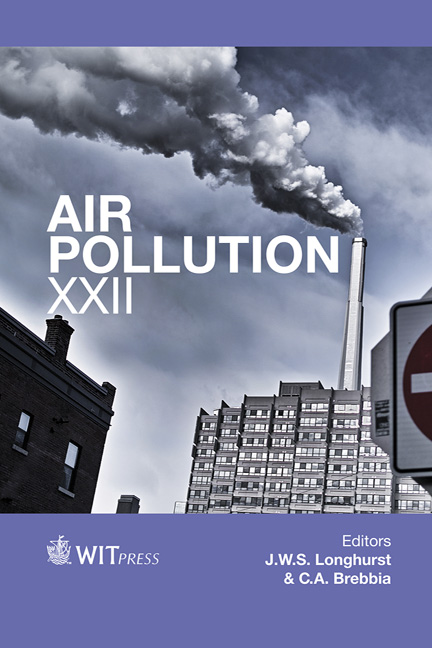Seasonal Trends Of Indoor Particulate Matter Concentrations In A Naturally Ventilated School Building
Price
Free (open access)
Transaction
Volume
183
Pages
11
Page Range
341 - 351
Published
2014
Size
993 kb
Paper DOI
10.2495/AIR140281
Copyright
WIT Press
Author(s)
V. S. Chithra & S. M. Shiva Nagendra
Abstract
This paper presents the seasonal trends in indoor particulate matter (PM10, PM2.5 and PM1) concentrations measured at a naturally ventilated school building located close to an urban roadway in Chennai city. The indoor PM10, PM2.5 and PM1 concentrations were monitored over a period of 106 days during winter, summer and monsoon seasons. Daily average PM10, PM2.5 and PM1 concentrations inside the building were found to be 171, 53, 33; 128, 42, 20 and 142, 51, 32 μg/m3, respectively during winter, summer and monsoon seasons. The indoor PM concentrations were varied with outdoor meteorological conditions, traffic emissions and indoor activities. Correlation between indoor and outdoor PM10 showed poor (R2=0.36) and moderate (R2=0.6) during working (8.00–16.00) and non working hours (16.00–8.00), respectively. Whereas, the indoor and outdoor fine PM (PM2.5 and PM1) levels showed good correlation irrespective of time period (R2=0.7–0.83), indicating that infiltration of vehicular emitted fine particles into indoors. The PM data analysis showed a strong seasonal influence with maximum values during winter and monsoon seasons coinciding with stagnant atmospheric conditions (low wind speed and temperature) and minimum during summer.
Keywords
indoor air quality, particulate matter, school, meteorology, resuspension.





